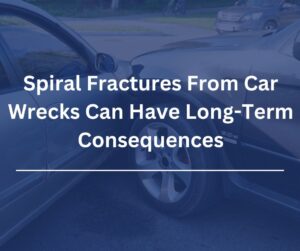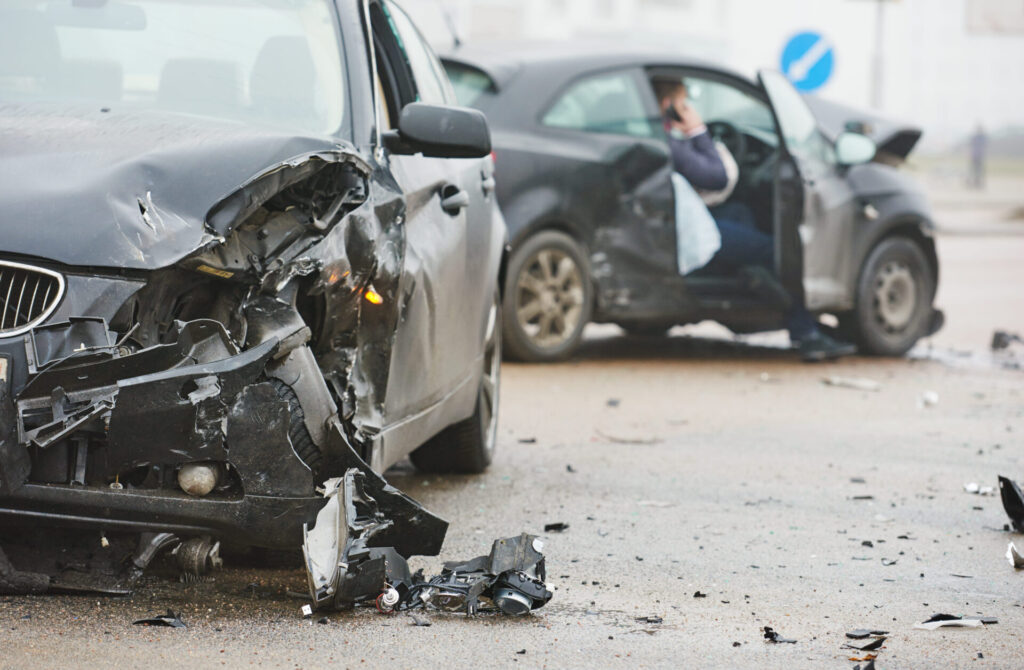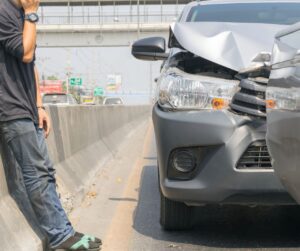
After a car accident, people typically assume the insurance company will handle everything. While most car accidents do end in insurance settlements, sometimes negotiations break down, and victims are left fighting for fair compensation. So what happens if you’re left in the cold? When does a car accident go to court, and what should you expect if it does?
Car accidents typically end up in court when insurance companies dispute liability, offer unreasonably low settlements, or refuse to pay. In these cases, legal action may be the only way to recover what an insurer owes. Keep reading to learn more about going to court for a car accident. Then, reach out. At Greenspan & Greenspan Injury Lawyers P.C., we fight for accident victims to ensure they receive the compensation they deserve.
When Can a Car Accident End Up in Court?
Not every car accident leads to a lawsuit, but certain factors make court proceedings more likely. The most common reasons a case goes before a judge include:
- Disputed liability. Insurance companies often conduct their own investigations and may assign blame unfairly, making a trial necessary to establish the truth.
- Severe injuries and high damages. Insurance companies may resist paying full compensation when an accident results in life-altering injuries or significant financial losses. A lawsuit may be needed to secure damages for ongoing medical care, lost wages, and long-term suffering.
- Bad faith insurance practices. A lawsuit may be necessary if an insurer refuses to negotiate, unfairly denies a claim, or delays payments without cause. Courts can hold insurance providers accountable for acting in bad faith and failing to uphold their contractual obligations.
- Uninsured or underinsured drivers. Victims may need to sue to recover damages if the at-fault driver lacks adequate insurance. Even with uninsured motorist coverage, disputes over payout amounts can still lead to litigation.
- Disagreements over settlement amounts. Filing a lawsuit may be best if an insurance company offers an unreasonably low settlement. Litigation may be necessary to ensure accident victims receive full compensation for their losses.
So when does a car accident go to court? The answer is clear: Legal action can level the playing field when insurance companies fail to act in good faith. At Greenspan & Greenspan, we take on insurers to ensure our clients aren’t left paying for someone else’s negligence.
What Happens When You Go to Court for a Car Accident?
If settlement negotiations fail, going to court for a car accident follows a structured legal process. Here’s what to expect.
Filing a Lawsuit
The injured party (plaintiff) files a complaint against the at-fault driver (defendant), detailing the accident and damages sought. This legal document outlines the facts of the case, the extent of the injuries, and the compensation you’re pursuing. Once filed, your attorney formally notifies the defendant and gives them time to respond.
Discovery Phase
Both sides exchange evidence, including medical records, accident reports, and witness testimony. This phase allows attorneys to gather critical documentation, depose witnesses under oath, and build arguments based on expert testimony. The strength of the case often hinges on the evidence uncovered during discovery.
Pre-Trial Motions and Negotiations
Attorneys may file motions to dismiss claims or negotiate a last-minute settlement. Motions can challenge evidence, request a case dismissal, or set legal parameters for the trial. Many cases settle at this stage when both parties see the risks of proceeding to court.
Trial Proceedings
If you can’t settle, the case goes to trial, where both sides present evidence and witnesses. The plaintiff’s attorney argues for compensation by proving the defendant’s negligence, while the defense challenges the claims. A judge or jury then weighs the facts before making a ruling.
Verdict and Compensation
A judge or jury determines fault and awards compensation if the plaintiff prevails. Compensation can cover medical expenses, lost wages, pain and suffering, and other damages. If the plaintiff wins, the defendant’s insurance typically pays the award to satisfy the judgment.
If you’re asking what happens when you go to court for a car accident, know that while going to court can be intimidating, experienced legal representation can make all the difference. At Greenspan & Greenspan, we guide our clients through every stage of litigation to build the strongest case possible.
Do I Need a Lawyer for a Car Accident Case?
Not every car accident requires an attorney, but legal representation is highly recommended in complex cases. A lawyer can help if:
- You suffered serious injuries that require extensive medical treatment,
- The insurance company denies your claim or delays payments,
- Parties dispute liability and fault is unclear,
- You’re facing financial hardship due to lost wages and medical expenses, and
- The other driver’s insurer is pressuring you to accept a lowball settlement.
An experienced attorney understands how to challenge insurance companies and maximize compensation. At Greenspan & Greenspan, we take the legal burden off your shoulders so you can focus on recovery.
Going to Court for a Car Accident? Contact Greenspan & Greenspan Injury Lawyers P.C. Today
If your case is heading to court, you need trustworthy legal representation. Here’s why accident victims choose us:
- Over 30 years of experience. Our firm has a long track record of success in personal injury litigation.
- Aggressive litigation strategies. We don’t back down from insurance companies.
- Recognized excellence. Super Lawyers-rated firm with over $15 million in settlements.
- No recovery, no fee policy. We only get paid if we recover compensation for you, so you have nothing to lose.
- 24/7 client support. We’re here for you whenever you need legal guidance.
Many parties settle car accident claims outside the courtroom. However, legal action may be necessary when insurers refuse to negotiate fairly. If insurers dispute liability, injuries are severe, or an insurance company won’t pay what they owe you, filing a lawsuit may be your best option. Greenspan & Greenspan P.C. offers free case reviews if you’re unsure about your next steps. Contact us today to discuss your case and learn how we can help you secure the compensation you deserve.







